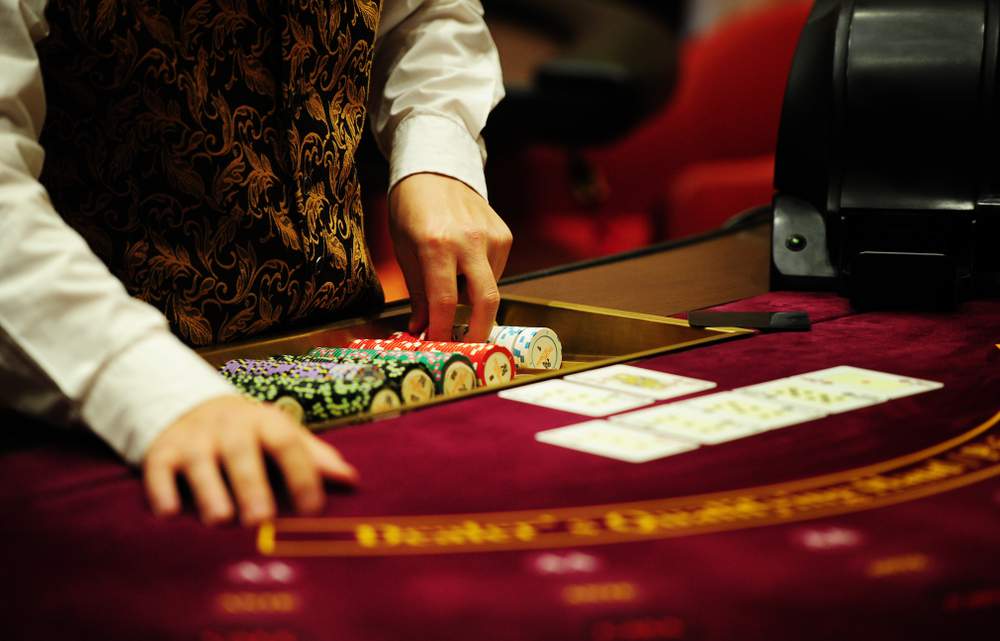

In the wake of the pandemic, which now thankfully appears to be behind us, New York State’s economy was devastated by all the associated costs. As such, lawmakers have been looking for all avenues to generate as much revenue from the gaming industry as they can.
The gambling landscape has changed drastically over the last year and more changes are only expected to keep happening. Case in point, in April this year, lawmakers in the state finally lifted a 10-year casino ban in Long Island Winchester, upstate New York, as well as downstate. Given the humongous potential for profit, the competition has been intense, to say the least.
The state law does not allow any new licenses to be awarded until 2023. However, not too long ago, Gov. Kathy Hochul proposed a state budget to move up the timeline, which set off several high-stakes deals and negotiations among some of the most established casino giants in New York City, which is currently the most profitable gambling market in the country.
Examples of top casino operators that have been eyeing the 3 downtown licenses include Wynn Resorts, Las Vegas Sands, as well as Bally’s Corporation. In September, Related Companies which has developed some of the largest casinos in the glove including Wynn Resorts and Hudson Yards, was among the first developers to bid for the casino.
So how did we get here?
In April this year, lawmakers in NY’s State Senate and Assembly approved a budget proposal that will allow operators in the Empire State to bid for 3 licenses to run brick-and-mortar casinos in the downstate New York area. Over the last couple of months, operators have been engaged in a bidding war to obtain the rights to break ground on new casino facilities to be located on the borders of New York City.
The Senate passed the budget proposal on April 8th before the assembly consented to the same. The last step of the approval process saw Governor Kathy Hochul sign the $220 billion state budget that consisted of the 3 licenses into law. Based on the budget that was approved, the licensing fee for each of the downtown casinos will be approximately $500 million.
Initially, the 3 licenses will cover 10 years but will not extend to more than 30 years. The local communities that end up with the casino facilities will end up as the biggest winners. That’s because the licensing fees, as well as the tax revenue generated, will prove useful for funding vital community projects for education, as well as gambling awareness and gambling addiction programs.
The tax rate on the combined Gross Gaming Revenue generated from slot machines has been set at 25% while a Gross Gaming Revenue of no less than 10% has been applied to other sources of casino revenue such as sports betting.
Throughout the bidding process, there has been a drive to award 2 out of the 3 licenses to already existing casino venues in the New York city district.
Under the terms of the deal, the NY State Gaming Commission created a 6-member board referred to as the NY gaming facility location board that is in charge of establishing where the 3 approved licensees will begin constructing their new gaming venues.
Senator Joseph Addabbo and other advocates of New York’s burgeoning gaming industry had high hopes that the 3 licenses would have been issued before the end of the year. However, with Christmas fast approaching, it doesn’t appear that the NY gaming facility location board will meet the deadline.
Video lottery terminal venues in New York City eyeing 2 of the licenses
For decades, gambling giants have had their sights on the 5 boroughs and the surrounding neighborhoods in the downtown area. And as one of the most coveted economic development prizes in eons, the competition for the licenses has been intense. The field of contenders has been growing gradually as the bidding contest continues to draw local developers and gaming giants.
But so far, the frontrunners appear to be 2 physical casinos that already have partial gambling licenses namely the Empire City Casino Yonkers Raceway and Resorts World Casino New York City. Because the 2 casinos only have partial licenses, they are allowed to have slot machines on the casino floor but no table games.
Yonkers Raceway and the Empire City Casino is operated by MGM Resorts. MGM Resorts purchased Yonkers Raceway in 2019 for approximately $850 million. However, VICI Properties Inc. acquired MGM Growth Properties for approximately $17B. Though VICI Properties owns the brand, MGM Resorts is still in charge of operations in Yonkers Raceway and the Empire City Casino.
The second proposed existing facility is Queens’ very own Resorts World Casino New York City at Aqueduct Racetrack. Resorts World Casino New York City at Aqueduct Racetrack is owned by an established Malaysian company known as Genting Group.
The 2 casinos, Resorts World Casino New York City and Yonkers Raceway already have a strong presence and are familiar with what punters in New York expect. If the 2 casinos manage to secure licenses, the venues would seek to expand in order to become full-scale casinos such as the ones found in Vegas or neighboring Atlantic City.
By allowing the 2 existing casinos to start operating with full licenses, it will lead to the creation of thousands of new jobs. In addition, the construction will also favor various construction union jobs. The 2 casinos will also generate much-needed additional revenue for the state.
It is estimated that the 3 licensees combined could generate an initial $1.5 billion just from the licensing fees. Once the licenses are approved, the construction process could take years to complete. That means that punters in downtown New York will have to be a little more patient before they can start walking through fully-fledged casino floors.
Final Thoughts
Following the approval of the budget, the legislature has worked together to monitor and ensure a timely and transparent bidding process for the highly coveted licenses. The Empire State has already proven to be an extremely lucrative gaming market since debuting legal online sports betting at the beginning of 2022.



